Mr Ignatius Donnelly writes that one day he happened
to be perusing a copy of Every Boy’s Book (1868 edition) belonging to
one of his sons when he came upon an article on Cryptography. If Mr Donnelly
had read on a little, he would have found articles on fencing, firework making,
gardening and philately, which may have inspired him to enquire further into
one those subjects, thereby preventing him from taking cryptography to his
heart.
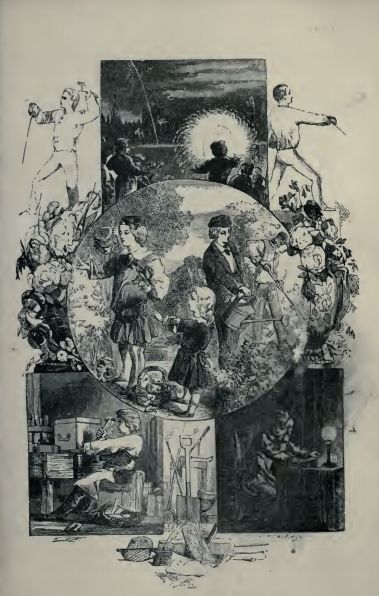 |
| Other subjects that could have distracted Donnelly |
If he had, the world of Shakespearean studies would have been spared a great
deal of misery and the rest of the world would have been spared his 1888 opus The
Great Cryptogram. Mr Donnelly was, sadly, not the sort of man to let things
lie. Nor was he the sort of man to keep his crackpot theories to himself but
instead he had an overwhelming impulse to inflict them on the rest of humanity.
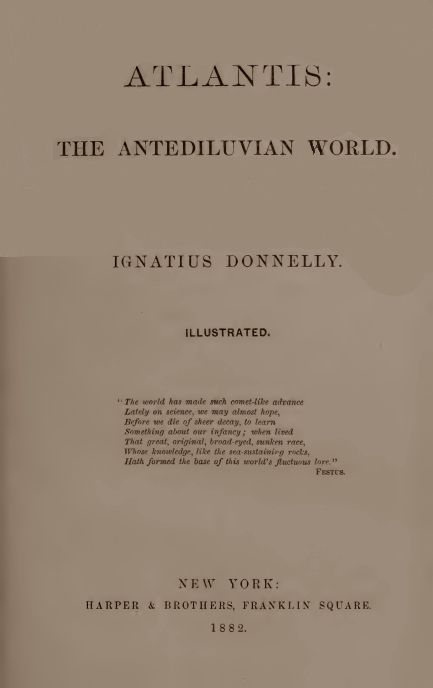 |
| Ignatius Donnelly - Atlantis - 1882 |
His first foray into pseudobabble began with Atlantis, The Antediluvian
World (1882) in which he explains, at length and with a straight face, how
the same deluge that is called Noah’s flood in the Bible destroyed the ancient
civilization of Atlantis that is mentioned in the works of Plato. A few of the
red haired, blue eyed inhabitants managed to escape the destruction and make it
to Ireland, where they founded the Aryan race,
(it should be mentioned that his full name was Ignatius Loyola Donnelly,
so you can guess where his family emigrated from).
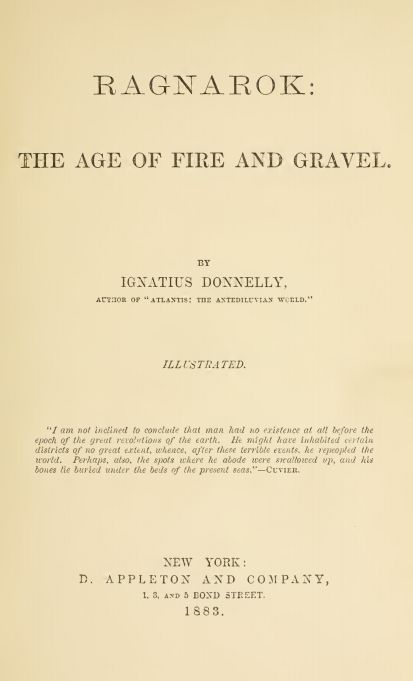 |
| Ignatius Donnelly - Ragnarok - 1883 |
In 1883, he followed this
nonsense up with another catastrophe-based tome, Ragnarok, The Age of Fire
and Gravel (yes, you read that right, fire and gravel) in which he
tells us how the earth had a near-miss with a massive comet, an incident which
caused that same flood that had destroyed Atlantis (and made all the mammoths
go extinct).
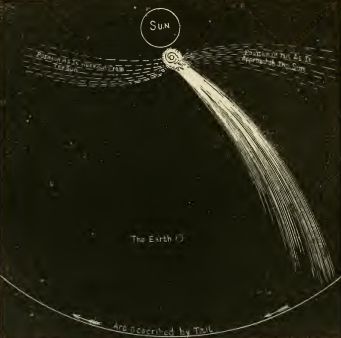 |
| A Comet misses the Earth and crashes into the Sun |
Five years later, someone let him get too close to the writing materials
and he was off and at it again. That article in Every Boy’s Book put the
conjunction of secret codes, Francis Bacon and William Shakespeare into
Donnelly’s fertile imagination, where the usual lunacy began to ferment. The
resultant brew was a book that Donnelly called The Great Cryptogram -
998 pages of such inspired madness that you may wish to take a little pause at
this point, pop into your kitchen and make a nice tin-foil hat for yourself,
just to be on the safe side.
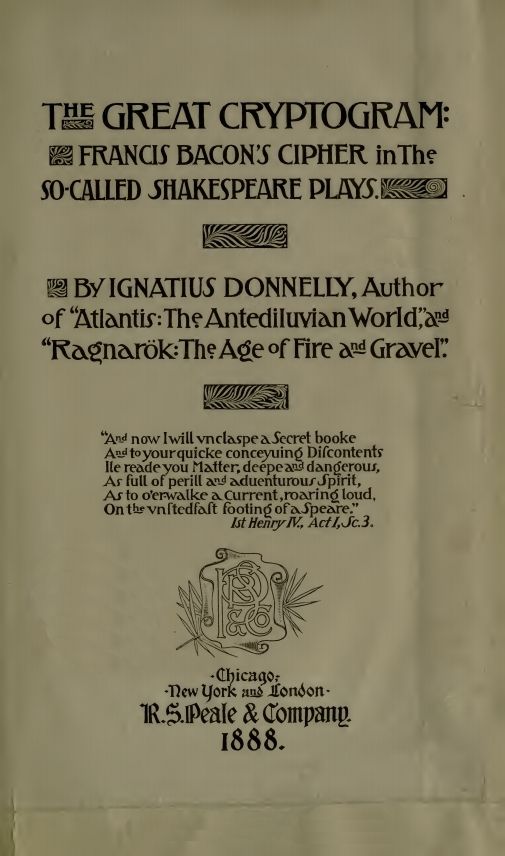 |
| Ignatius Donnelly - The Great Cryptogram - 1888 |
To warn you in advance, Ignatius Loyola Donnelly
was an American gentleman who began his career as a lawyer and if that wasn’t
bad enough in itself, he moved on to become a politician – and a Republican one
to boot, as if you couldn’t have guessed – before starting up a political party
of his own. Right, now you know the kind of mind that we’re dealing with, so if
you’re sitting comfortably, I’ll begin.
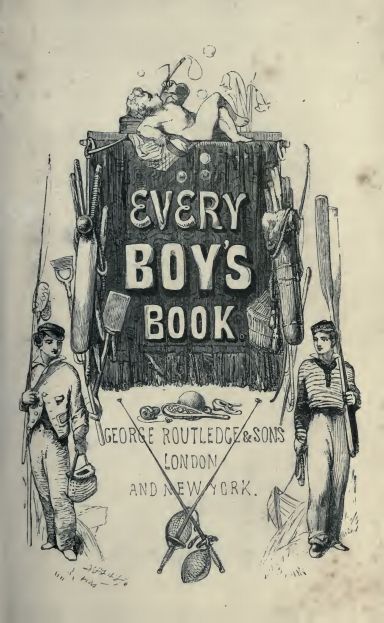 |
| Every Boy's Book - George Routledge and Sons |
In the Every Boy’s Book,
Donnelly read that if, hypothetically, Francis Bacon had hidden a coded message
in a book for boys, only one person in a thousand would notice it. What,
reasoned Donnelly, if Bacon had hidden a real coded message somewhere.
Where might he put it, where just one person in a thousand would notice it?
He’d hide it in the first folio of Shakespeare’s plays, of course. Mr Donnelly
bought himself a facsimile copy, got out his crayons, and started counting.
The
first thing he noticed was that the pagination of the first folio is all over
the place. Some page numbers are out of order, even though the text itself is
uninterrupted. Some page numbers are missed out, some are repeated and there
are blank unnumbered pages. Now this might just be the printers getting
confused and muddled up. Then Donnelly started looking at the words that
appeared printed in italics on each page, counted them up and multiplied them by the number of the page on which they appeared.
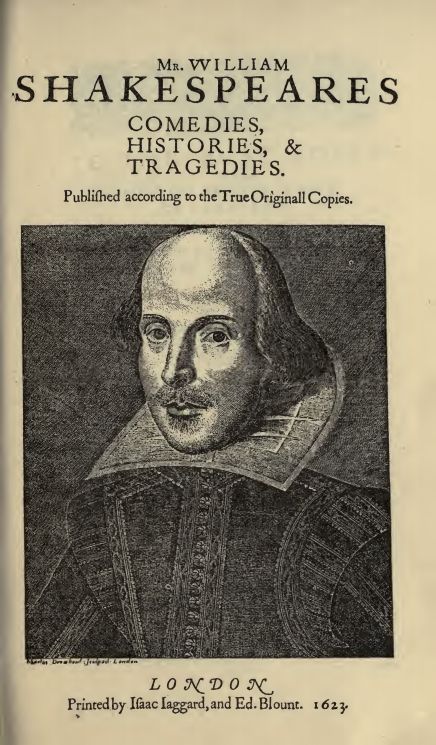 |
| William Shakespeare - First Folio - 1623 |
One example he brings to
our attention is on page 53 of the Histories (the Histories, Comedies and
Tragedies are number separately in the first folio) in the play King Henry
the Fourth Part One. There are seven words in italic letters in the first
column that appears on page 53. 7 multiplied by 53 is 371, and the
three-hundred-and-seventy-first word in the first column on the same page is ‘Bacon’.
He looks next at page 67 (Why page 67? Maybe because he found what he was
looking for there). He counts up the words in italic letters – there are six.
He multiplies this 6 by the number of the page (67) and gets 402. The
four-hundred-and-second word on that same page is ‘S.Albones’, and bless
my boots if Francis Bacon wasn’t Viscount St Albans!
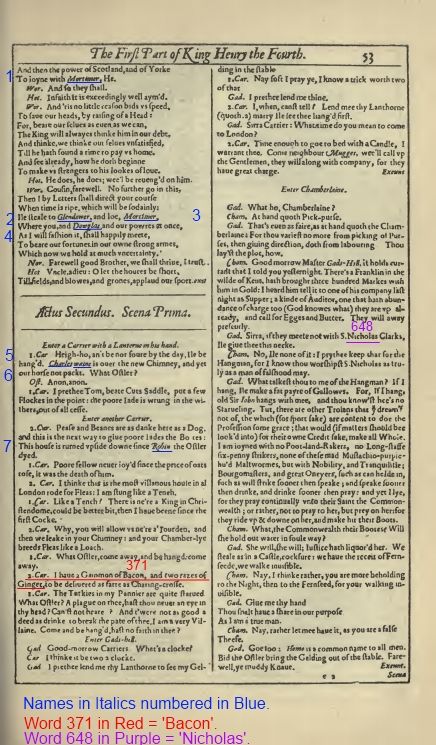 |
| Shakespeare First Folio with annotations - click on image to embiggify |
Donnelly returns to page 53.
He notices that word number 648 on that page is Nicholas. He counts up
the words in italics in the first column on page 54 – there are twelve. Twelve
times fifty-four = 648. ‘Nicholas’, word 648 on page 53, is the name of
Francis Bacon’s father. By now, Donnelly believes he’s truly onto something. He
multiplies 53 by 6 (= 318), and counts the number of words from the first
subdivision on page 55. There are 255 words. He subtracts 255 from his 318,
which leaves 62. He counts sixty-two words down from the subdivision in the
second column on page 55. The word is ‘Francis’. Heaven’s above.
He
turns again to page 54. He counts down to the first division in the page. 396
words. He counts down to the word ‘Bacons’ on the same page. 198 words.
396 + 198 = 594. And 594 is 54 times 11. He counts backwards up the first
column for 477 words (53 times 9) and he arrives at the word ‘son’. What
does all that give you? “Francis Bacon Nicholas Bacons Son”. Blooming
heck.
Incidentally, for those of you interested in such things, this post marks this blog's first birthday. That's 365 consecutive days with at least one post on each day. Thanks to anyone who has arrived here once and has seen fit to return again. I hope you will be able to come back again during the next year. Best wishes, Michael.
No comments:
Post a Comment